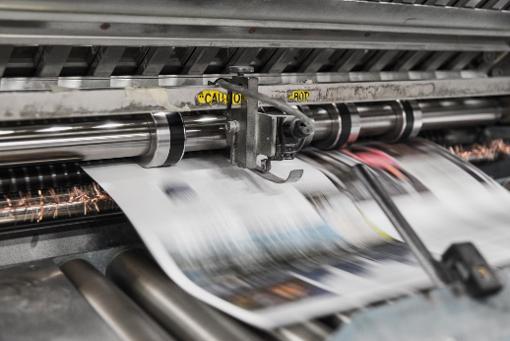














Hollie Gazzard Trust welcomes new CEO
Ajourney to save lives: Resuscitation Council UKpartner with utctravel
New initiative offers small businesses Channel 4 TVadvertising
Macrium partners with Sysmex America to reduce medical testing downtime
Small businesses named in ?British Bucket List Experiences to Tick Off in Your Lifetime?
Ways Businesses Can Tackle the Workforce Readiness Gap
Networking expert Stefan Thomas announced as host for TBEbusiness lunch Design studio's iconic Victorian greenhouse gets glass crown ITspecialist WestSpring celebrates successful year

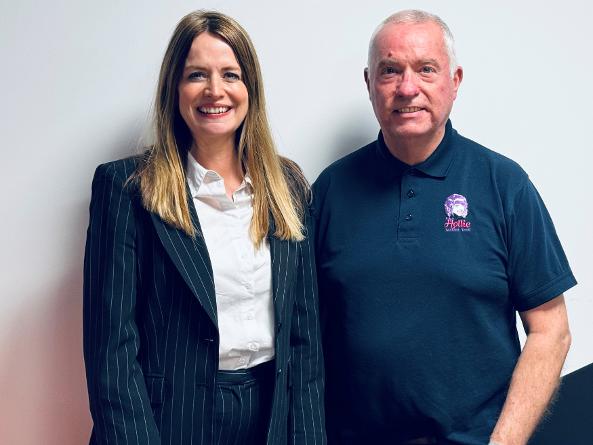

The Hollie Gazzard Trust has appointed a new CEO, Jane Harvey, as founder Nick Gazzard OBEsteps aside after 11years of dedicated service to the Gloucestershire-based organisation.
The trust?s mission of preventing violence against women and girls has saved lives and reached millions of people thanks to Nick, father of Hollie who wanted to create a legacy in his daughter?s name.
Nick said: ?Having founded and led the Trust, this has been a great honour and a privilege The time has come for me to step aside, and I know that the Trust is in great hands with Jane and will to continue to grow and be impactful in tackling violence against women and girls
?Moving aside will allow me to represent the Trust in a public facing role and continue the good work done since losing Hollie. It also provides me with the opportunity to join the Board of Trustees?
Stepping into the role of CEOis Jane Harvey, who brings a wealth of experience and passion to the trust?s mission. She has an extensive background in broadcast journalism, having worked with renowned organisations such as the BBCand ITVfor more than 20 years. Her dedication to combating stalking began in 1999 with an ITVnetwork documentary, where she engaged with global experts in risk and safeguarding
Jane?s dedication to this particular cause led
her to join Tracey Morgan?s charity, Network for Surviving Stalking, where she spearheaded projects that have shaped national policy As a founding member of the team that established the National Stalking Helpline in 2010, Jane?s efforts have provided critical support to countless individuals Now she?s bringing her vision to the Hollie Gazzard Trust
Her connection with the Trust began when she heard Nick speak about Hollie on the radio Motivated by Hollie?s story, Jane took on a frontline role in 2017, providing specialist risk assessment, safeguarding, and advocacy for high-risk stalking victims in Gloucestershire. This initiative, initially a pilot project funded by the Hollie Gazzard Trust, has grown to help hundreds of victims/ survivors and now benefits from statutory funding.
Jane said: ?Words can? t convey how honoured I am to take over as CEOof the Hollie Gazzard Trust This charity, born out of the worst circumstances imaginable, has achieved so much thanks to the hard work, tenacity, and positivity of Nick, his family, and supporters
?I am mindful I have been given this opportunity because I have been privileged to learn from those who have personally experienced the devastation of stalking and domestic abuse These people remain in my heart and mind as I step into this important leadership role.?




utc.travel, the UK?s leading travel subscription brand, has announced a major partnership with Resuscitation Council UK (RCUK) as their official charity partner Together, they aim to spread vital CPRskills to businesses across the UKwhilst improving mental health and wellbeing
Recent research commissioned by RCUK revealed that 62% of people would like to know how to perform CPR. utc.travel will utilise its wide-reaching network to help increase the number of people trained in this lifesaving skill, encouraging members to take part in training sessions and to share this vital knowledge with others.
The collaboration also aims to address existing disparities in CPRtraining, focusing on areas with high instances of cardiac arrest and low bystander CPRrates. By working together, RCUKand utc.travel are determined to ensure that everyone has an equal chance of survival
James Cant, CEOat RCUK, commented, ?We are thrilled to partner with utc.travel. The partnership will not only equip individuals with life-saving skills but also help create a culture of confidence and readiness when faced with a cardiac emergency Together, we hope to make a real difference across
Stephen Knight, Chairman of utctravel, stated: ?We are delighted to support the incredible work of Resuscitation Council UK
By collaborating with UKbusinesses, particularly HRleaders, we aim to support workplace wellbeing, ensuring all employees can access holidays at affordable prices If through our communications, we empower even one person to confidently perform CPRin an emergency, we will have made a meaningful difference?
Key Partnership Initiatives include Together, utc.travel and RCUKwill focus on:
1. Raising Awareness ? Joint marketing efforts to inform both utctravel and RCUK audiences about the partnership
2 Encouraging CPRTraining ? Promoting RCUK?s lifesaving campaign to utc.travel corporate members.
3 Supporting Donations ? Creating opportunities for utctravel members and partners to contribute to RCUK?s mission
4. Providing utc.travel Memberships ? Offering free utc.travel memberships to RCUKpartners, helping more people benefit from lower travel costs

Networking expert Stefan Thomas announced as host for

Bestselling author and professional speaker Stefan Thomas will host the Networking Lunch at this year?s TBEShow in Bath
The event promises to be a prime opportunity for professionals to connect, learn, and grow their business networks.
The TBEShow is entering its second year with a mission to support and grow the business community across Swindon, Wiltshire, Bath, and Somerset
Through its print magazine, online presence,
and networking events, TBEhas become a vital resource for businesses in the region.
Stefan will host the Networking Lunch, where he will offer his expert tips for more effective networking
Stefan is keeping the full details firmly under wraps until the day but each attendee will get not only advice, but the opportunity to put their networking skills into practice, and win valuable connections on the day.

The goal is to help those who may find networking intimidating to build confidence, with strategies and icebreakers to spark authentic, meaningful conversations that feel natural rather than sales-focused
Stefan said: ?I?m really looking forward to hosting the TBENetworking Lunch and helping attendees build their confidence in networking Networking doesn? t have to be a daunting task; it?s all about starting authentic, meaningful conversations.
"I?m excited to guide attendees as they take those first steps towards building valuable business relationships
?Every time I?ve done anything like this before, I?ve found that attendees have made relationships which have lasted for many years after the event, and in many cases have turned into actual business too?
TBEfounder Anita Jaynes first met Stefan at a media summit earlier this year, where she attended as a guest journalist and he was a keynote speaker
Impressed by his engaging approach and practical insights, Anita saw an ideal
opportunity to bring his expertise to the TBE community.
?Having heard Stefan speak in the past, I know that like me, he?s passionate about helping people create meaningful connections through authentic conversations,?said Anita.
?The TBEShow is all about driving new relationships and fostering regional growth, and his insight will be invaluable in doing just that.?
The Business Exchange (TBE) is a quarterly print and online business magazine serving the Swindon and Wiltshire, and Bath and Somerset regions
The TBEShow is designed to connect business professionals, industry leaders, and entrepreneurs
The TBEShow 2024 will take place from 8:30 am to 4:00 pm on Thursday, 11September at the University of Bath School of Management.
To book your place at the event, visit: wwwtbeswindonandwiltsco uk








Bothy Gardens?iconic Victorian glass greenhouse is reaching the end of its long-awaited restoration, as it receives its glass roof ready ahead of the site?s first Wiltshire open day on Saturday, 10 May.
Restoration of the greenhouse started January 2022, when it was covered in dense grapevines eroding beams and glass panes and the floor was hidden under a carpet of overgrowth.
The greenhouse is part of the walled garden which forms part of the Burderop estate at Chiseldon, near Swindon in Wiltshire It was bought as a passion project by a couple who have spent years bringing the site back to life while maintaining its Georgian and Victorian character
The hints of its Victorian past were buried and broken but Bothy Gardens?owners Jules Gilleland and Mark Wheeler have worked hard to see the structure returned to its former glory with some modern additions
?The restoration has been a long process,? Jules said. ?Two fig trees were rooted behind the greenhouse were cleared which allowed light to reach the structure again
?Wooden doors and beams were either
removed completely due to decay or restored to preserve the historical nature of the greenhouse
?Its original brick was replaced or restored because trees had forced themselves through the structure. We also had to have the metal framework removed and restored, but we managed to keep and clean a third of the original floor tiling?
The greenhouse is of historical significance because its among the earliest steam-heated greenhouses of its time Many of the original cast-iron heating pipes and some of its original Victorian-tile flooring were intact when the greenhouse was discovered.
The final stage of restoration was replacing the glass roof, which had to be removed for safety and modern insulation. Thicker and more reliable glass will be installed in the coming weeks. The new flooring, salvaged heating pipes, and glass roof will preserve the historical significance of the structure
The greenhouse will become a creative studio for Turtlewings Ltd, Jules Gilleland?s design practice and a dedicated space for rare orchid propagation, as well as an area to preserve seasonal fruits and vegetables
ByOccupop

By 2030, a fifth of the UKworkforce may find themselves seriously under-skilled for their jobs Whilst it might sound like a sci-fi dystopia, according to the Industrial Skills Strategy Council, this could be our reality if we don't act now. Welcome to the world of the workforce readiness gap ? a challenge for many small and medium-sized enterprise (SME) owners
How to recognise the workforce readiness gap
The workforce readiness gap as a mismatch between what your employees can do and what your business needs them to do
The gap grows when businesses struggle to spot and nurture essential skills, keep up with their workforce's evolving learning needs, and tap into valuable employee insights
David Banaghan, Co-Founder and Interim CEOat Occupop, comments: "The workforce readiness gap isn't just about whether your employee can use the latest software It's about whether they can adapt, learn and bring fresh ideas to the table.
For SMEs, where every employee wear multiple hats, this readiness can make or
break your business."
Why the workforce readiness gap is a cause
From talent scarcity to lack of training within workplaces, these figures help to highlight why UKbusinesses need to act now.
- The World Economic Forum reports that half of all employees will need reskilling by 2025
- According to ManpowerGroup, a whopping 80% of UKbusinesses are struggling to fill roles due to a lack of skilled talent It's a 17-year high, making the talent hunt feel like searching for a needle in a haystack.
- The Employer Skills Survey 2022found that only 60% of employers had provided training for their staff in the last 12 months, down from 66% in 2017. We're going backwards when we should be sprinting forwards.
Right now, we're entering what the Chartered Institute of Professional Development (CIPD) calls the 'big stay' whereby job stability is the hot new trend and employers are focusing on retention The CIPD's latest

Labour Market Outlook shows that 55% of UKemployers are looking to maintain their current staffing levels ? the highest since 2016-17
This 'big stay' might sound like good news, but it comes with its own challenges If your employees aren't evolving their skills, you could find yourself stuck with a workforce that's not prepared for the tasks your business requires them to take on.
There are ways your business can bridge this gap without breaking the bank Here are five strategies to help you do that.
Think of it as a health check for your business With plenty of affordable HR tools out there, complete regular skills audits to help you spot where your employee might need a boost in one area or another
Create an environment where learning is a comfortable and familiar part of the working week It could be as simple as setting aside an hour a week for online courses or having team members teach each other new skills The key is to make it regular and fun.
It's important to ensure that your team's learning journey is taking them in the same direction as your business.
Bring in freelancers or contractors to fill skill gaps quickly You might even find that
your employees learn a thing or two in the process
Build bridges with local colleges or training providers and offer internships or apprenticeships This can ensure you have a steady stream of talent that's ready to support your workforce
Creating a culture of continuous learning can not only boost skills among your employees, but it could also help you focus on their career development
Reinforcing the value of continuous learning, Banaghan says: "Employees who keep learning can tackle all sorts of challenges as your business grows and develops This could potentially mean that you experience fewer talent shortages and spend less money on recruiting outside of your business for senior roles Plus, it keeps your teams engaged and excited about their work, retaining them for longer"
Allowing your employees the opportunity to choose what they want to learn is important too According to a report by workplace culture specialists, OC Tanner, a staggering 90% of employees say having a say in what skills they learn is crucial to their job satisfaction
The workforce readiness gap might seem like a mountain to climb but with a bit of creativity and a lot of determination, it's a challenge that can be turned into an opportunity By investing in your employee's skills today, you're not just solving a current problem, you're future proofing your business.





Words:Craig Sergeant of Advance Copy
Are you being cheated?
It?s a fair question to ask. Because if so, you might not even realise it yet Today, people?s access to committing fraud and deception is easier than ever. And that makes you and your business vulnerable So, what?s happened?
No doubt you?ll know that AI is the business world?s brand-new hope. Companies of all types and sizes are racing to integrate it to automate immeasurable ways of working For example, lots of websites proudly employ some sort of AI-powered chatbots Like it or not, the top of almost every Google search serves you an AI-generated response (of dubious quality) And even WhatsApp has an AI assistant for some reason
Though there was a time when it may have seemed like AI was some sort of flavour of the month, that?s clearly not the case It?s the next stage of the technical revolution ? and it?s only the beginning So how does AI relate to you being cheated?
Well, on top of being the business world?s brand-new hope, it?s also its biggest threat. Because whenever there?s a new tech development, one thing is always first to exploit it:
The common refrain is that ?organised crime is one step ahead of the law.?Historically, that meant groups of smart yet morally dubious people working together to profit from corporate loopholes and weaknesses
Amajor element of such crime has been by forging documentation ? whether altering existing ones or creating new ones And
though the main barrier to success was previously the limitations of technology (or the people using it), that?s now changed AI has democratised access to fraud And that means people could be using it against you.
People you trust
You may have seen a flurry of recent posts online showing images of lightly crumpled receipts resting on a light woodgrain-topped desk Aswift glance would quickly tell you they were employees?meal expenses claims ? just like any other. Yet the (virtual) reality is that the receipts never existed at all They were generated by ChatGPT
You may scoff, ?Well, it?s just a meal claim. The world?s not going to end Lots of people want to make their money go a bit further? And you?d be right.
A2022 study of the UKpublic sector revealed that 42% of decision makers admitted to submitting fraudulent expenses claims Now, bear in mind the self-censorship that some in the study likely employed (they?re human after all), and it?s not out of the question to believe the true number is a lot higher.
And while it could be an issue for you if bogus expense claims from your staff start piling up, there?s also the chance that everyone ? including you ? gets caught. And the AI risks don? t end there
Let?s take billing and invoicing, for example It?s pretty much certain that, if you?re running a successful business, everything is done digitally So, imagine running on autopilot as you blast through business admin so you can
get back to doing ?real work?
Can you be sure that big invoice you paid was legit?Was it definitely not a ChatGPT-generated one?What about that electricity bill?And what happens if your business itself ? and you ? are cloned by scammers who use you as the front for their ill-gotten gains?It?s a new concern, which the Investor Association trade organisation recently reported, stating that investors have lost around £2 million by falling for a reported 23% of attempted business-cloning scams
Meanwhile, perhaps you have a public profile. Or maybe you have a video or two online of you being interviewed or promoting your business. It?s incredibly easy to take the video audio and feed it into an AI voice generator And then what?Pretend to be you and contact your bank, maybe?It happens. And worryingly, it works
We?re entering a world where it?s hard to tell what?s real and what isn? t So, it?s concerning to read the complacency of certain business leaders in the results of a recent Vodaphone Business study, which says, ?78% were
?confident?that their employees could successfully identify a sophisticated AI-driven phishing attack. However, two-thirds failed to do so.?Younger staff aged 18 to 24, who you might expect to be savvier, ?appeared more likely to fall for AI-driven phishing scams than their older peers.?
As always, the scammers play a numbers game They cast their nets widely, targeting audiences big enough to guarantee at least someone will fall prey to their schemes, no matter how ludicrous they might be ? as the next story shows.
While it might be getting harder to know what?s actually real anymore, sometimes the truth is still stranger than fiction

Back in 2023, probably during the peak usage of the phrase ?deepfake,?a small art gallery in Derbyshire became an overnight global news sensation. And not for the right reasons.
The art gallery owner, Simone Simms, found what she thought was a major movie star?s Facebook page and sent an email to its listed
address. She wanted to make a mark on the local scene with a celebrity exhibition. The actor in question?Pierce Brosnan
Over many months, Simms was in contact with ?Brosnan,?his wife, lawyers, and management team over email and the Telegram messaging app Most convincing were the deepfake Zoom video calls, where she locked eyes and chatted with the man himself
Finally, after making a £3,000 payment, Simms was ready to put on Brosnan?s first-ever exhibition The date was finalised, and tickets went on sale. That was until a few days later when the real Brosnan released a statement on social media denying his involvement He stated he?d never charge for a public appearance and hit Simms?gallery with a cease-and-desist letter
Simms claimed she was the victim of ?some elaborate scam?and fell for what she thought was a real page She said the deepfakes ?looked real, and [ ] looked legit I did my
best to check?
The story shows that while AI poses risks to every business?s finances, don? t forget about the dangers of devastating reputation damage. Crises
At the time of writing, the hugely successful language-learning app Duolingo is dealing with a PRdisaster It recently ? very proudly ? announced that it would replace all human contractors with AI that could, in theory, do the job for them And at much less cost The backlash has been damning.
One of the more polite critical comments said: ?What kind of audience do you think you?ve built that it?s okay to go ?AI-first.?We don? t want AI, we want real people doing good work Goodbye, Duo If this is the way you?re going, you won? t be missed.?
Aweek after Duolingo?s first announcement, its CEO, Luis von Ahn, backtracked with: ?To be clear: I do not see AI as replacing what our employees do (we are in fact continuing to

hire at the same speed as before). I see it as a tool to accelerate what we do, at the same or better level of quality?
Similarly, a few years ago, the buy-now-pay-later tech company Klarna pre-empted Duolingo and became an ?AI-first?proponent
It used OpenAI and announced to great fanfare that it was cutting its workforce by around 22% Yet more recently, it has been quietly hiring more humans again. But why?
Despite the optimism of the tech industry to go ?all-in?on AI so quickly as the all-in-one answer to their problems, it?s not quite so simple. AI is a powerful tool, but human behaviour (that is, businessbehaviour) is messy, complex and irrational Leaving everything up to AI makes it harder to change course when things go wrong And according to recent reports, it?s almost guaranteed that they will.
Cybersecurity Drive recently revealed that around two-thirds of AI projects were abject failures. The true number is likely much higher
So, when customers, partners and suppliers have painful AI-driven experiences, they?ve no other choice than take their money elsewhere ? somewhere that truly cares Somewhere ?human-first,?perhaps?
That certainly wasn? t the case in 2024, when a state-run show on Radio Krakow in Poland made the maverick move to fire its staff, experimenting with an entirely AI-run broadcast. Instead of being what was intended (an interesting technological trial), it opened up a national discussion about how
AI destroys livelihoods.
Editor-in-Chief, MariuszMarcin Pulit, complained that people thought he was ?a job-killing monster who wants to replace real people with avatars," seemingly with little remorse or awareness that the description was quite accurate
As well as fears of AI?s potential to leave billions of people jobless, much of the wider worries relate to how ?human?it seems It?s the ?Uncanny Valley?phenomenon ? where AI closely resembles us, but something isn? t quite right There?s a sheen of uncertainty that leaves many feeling cold, uneasy ? and in some cases, scared.
Yet it?s not all bad
It?s pretty much certain that AI will one day play as big a part in our lives as the internet currently does How that will happen, we can? t know for sure But we do know its benefits as a productivity-enhancing tool. Just like our favourite apps, websites, GPSand more, AI will help make our lives easier And there?s another side to it
Whenever there?s a new development with AI, such as an ever-more realistic video, initial reactions tend to focus on how mind-blowingly good it is. And then we get used to it Very quickly ? because humans are incredibly adaptable creatures ? and then it just looks like AI.
Think about it: if you?re a LinkedIn user, have you noticed how almost every post says the same things in the same style and with the same tone?How it?s a lot of words yet completely empty of meaning?Clearly, most people have marvelled at the

time-and-effort-saving writing tools of ChatGPTand Claude and put them to use But there?s a problem.
We know it?s AI Just as we do for images And audio And video And so on And if everything every business does looks and sounds the same, why should anybody care about what makes your organisation different ? what makes you so valuable?
Not only that, if you haven? t put the effort into making something, why should anybody put any effort into consuming what your AI has spewed out?People are now so used to such digital clutter that it even has a name: ?AI slop?
So, be careful what you put out in the world, because there?s an appetite for something else Something deeper
AI can perform tasks of incredible complexity and scale. But it lacks one of the most fundamental features of human nature
Something that we all need to survive: Connection.
AI can try to mimic connection, but it can never truly achieve it Because AI can never care. Despite its name, AI is not intelligent. It?s
not sentient. It doesn? t understand emotions. It doesn? t understand anything It?s lots of complex maths involving zeros and ones
It?s why AI can never beat Michealangelo?s Sistine Chapel, Gaudí?s Basílica de la Sagrada Família, or a World Cup Final Maybe it can make something that?s equally as pristine and perfect ? even technically ?better?than them ? but it doesn? t have someone?s heart, soul, blood, sweat and tears in it. It?s the flawsthat make something real ? and makes it human.
And that?s worth more to us ? because that?s human connection It?s why master craftsman-made furniture means more than flat-pack from IKEA, why a handmade Rolex beats a Casio, and why ? despite our limitations ? real human effort still beats AI.
It?s easy to reach for the quick fix to help get you through the working day Sometimes, that?s going to be AI. But remember, your customer always comes first
So, look at how you use AI and the impact it has on them. Are you treating them with the respect they deserve or do you think they should be happy with ?AI slop??
Because then, just maybe, theywill feel cheated by you.

New initiative offers UKsmall businesses rare opportunity to secure national TV advertising with Channel 4 worth £300,000
Anew competition from Constant Contact and Enterprise Nation in collaboration with Channel 4 is set to offer UKsmall business brands an opportunity to win a professionally produced broadcast TVadvert on Channel 4 and expert marketing support ? a package worth hundreds of thousands of pounds
Small Business, Big Break is a collaborative initiative from digital marketing and automation platform Constant Contact, small business support platform Enterprise Nation and national broadcaster, Channel 4
The initiative will shine a light on the UK's brilliant small business community, opening up an opportunity for three successful brands to tell their story to millions of potential customers on TV- connecting them to a proven marketing channel that can
help small businesses scale.
Erika Robinson, UK General Manager of Constant Contact, said: "Constant Contact provides the marketing tools and support that small businesses need to excel and grow."
"Small Business, Big Break will deliver a life-changing boost to some of the UK's most exciting businesses, catapulting their brand into the homes of millions of consumers with comprehensive marketing support and professional advertising that might otherwise be out of reach"
How Small Business, Big Break works
The competition opens on April 4. To enter, small businesses need to complete a short application explaining their business and why they deserve a chance to be on TV Applications close on May 15
Apanel of judges from Constant Contact and Enterprise Nation will review applications, upon which finalists will be invited to pitch their business for a chance to win the main prize The top three winners will receive:
- Abespoke TVadvert developed by a leading creative agency
- Strategic support from a team of experts to define and target their ideal audience
- Ashare of £300,000 in Channel 4 advertising airtime
In addition, ten finalists will benefit from a package of business-building support, including:
- A12- month Premium subscription to Constant Contact's full suite of digital marketing tools
- Small business mentorship and expertise from industry leaders
- A£2,000 grant, to be used on any marketing activity to support ambitions for growth
- Access to a marketing consultant, worth £500
Those who would prefer not to take advantage of the TV advertising portion of the main prize will still qualify for a £2,000 grant, to be used on any marketing activity that supports their business' growth, 12 months of Constant Contact Premium and access to a marketing consultant valued at £500
"Supporting small businesses is a key part of our mission at Constant Contact," said Robinson. "We're excited to see the innovation and growth that small businesses can achieve, given the spotlight and airtime
that this prize will offer."
Emma Jones, CBE, founder of small business support platform and membership community Enterprise Nation, said: "Finding new customers is fundamental for any business that wants to succeed and grow. But cutting through the infinite noise and telling the story of your brand is now harder than ever
"We're delighted to team up with Constant Contact and Channel 4 to give winning businesses a unique opportunity to do exactly that through a traditional advertising medium that has stood the test of time and is still one of the most effective ways to expand awareness of your product or service
"We can't wait to see their names up in lights on our TVscreens in the coming months"
Nick Archer, Client & Business Development Leader, Channel 4 Sales, said:
"Television advertising provides SMEs with unparalleled scale and conversion potential It is a highly trusted platform delivering memorable brand experiences like no other platform, in turn driving significant customer growth By tapping into TV's mass reach, SMEs can convert a vast, untapped market of non-buyers into loyal consumers."
Businesses can enter here.
To enter this competition, businesses must have been operating for at least 3 months; have a Companies House number or UTR; and employ between 0 and 50 people. Businesses must be based in the UKand have a British bank account

Macrium Software, a leading provider of Windows backup solutions, shares its successful partnership with Sysmex America, a global leader in haematology diagnostics.
This collaboration has revolutionised Sysmex's approach to service delivery, providing solutions for common downtime issues that previously required on-site technician visits.
In healthcare settings, equipment downtime isn't just an inconvenience - it's a barrier to timely diagnosis and treatment Sysmex America recognized this challenge and sought a solution that could minimize
disruption while maintaining security standards
"The key objective is to reduce downtime as much as possible because any downtime has a negative impact on patient care which ultimately has a delay in treatment," explains Jose Rivera, Vice President of Service and Support for Sysmex America
"Service excellence is fundamental to both our businesses," notes Dave Joyce, CEOof Macrium Software "For Sysmex, every minute of downtime directly impacts patient care They needed a solution that understood this critical relationship between uptime and patient outcomes"

Prior to implementing Macrium's solution, Sysmex technicians had to physically travel to customer sites to address software issues.
Now, with Macrium's technology, Sysmex's support teams can perform remote restores quickly and securely, transforming their service model
"It was important for us in a highly regulated industry to make sure that the backups are safe and secure and stay local at that customer account," explains Ben Boeke, Group Manager of Technical Product Management at Sysmex America, "so Macrium provides that by encrypting their backups, we're able to ensure that those
backups never change over time"
The partnership has already delivered impressive efficiency gains, with labour costs reduced by 50% and projected savings of up to 75% once fully implemented Most importantly, equipment downtime has plummeted from hours to minutes, improving patient care through faster diagnostics.
Watch the complete Sysmexcase study video hereto hear directly from Rivera and Boeke about enhancing patient care through reliable testing with Macrium
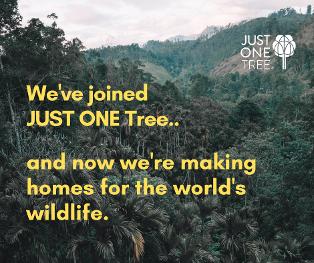










Trump?s obsession with trade deficits has no basis in economics. And it?s a bad reason for tariffs
ByNigel Driffield, Professor of International Business, Warwick BusinessSchool, Universityof Warwick




Those of us who study trade and investment for a living are, I suspect, becoming exasperated with both the White House stance on tariffs and the way that this is reported in much of the media US president Donald Trump believes that if a country has a trade surplus with the USit is somehow playing unfairly and needs to be dealt with. But anyone who understands the basics of international economics will recognise the fallacy in both of these beliefs
Trade takes place based on what economists call ?comparative advantage?? countries import those goods that are otherwise relatively expensive for them to produce And they export what they produce cheaply relative to other countries.
So the UK, for example, has a trade surplus in services but a deficit in goods that are made in low-cost locations This is similar to the position of the US
To understand what the USis seeking to achieve, the first questions must be: what are tariffs designed to do?And when are they typically applied?These issues lead to another point If Trump is so convinced that his tariffs will produce a win-win, why haven? t they succeeded before?
Trade policy in the form of tariffs is designed to make imports more expensive and encourage buyers to switch to domestic producers. This may be an attempt to protect or support local industry, or as part of a bargaining strategy to access others?markets
But this assumes two things First, that the
demand for such imports is relatively price sensitive (that is, buyers will be put off by price rises) And second, that there are domestic producers able to fill this gap at an appropriate price
But tariffs can also cause what is known as ?trade substitution?? where the country imports the goods from alternative sources instead.
To illustrate how this can work in practice, the UShas long applied tariffs on European whisky, ranging from 10% to 25%in recent years.
The USalready produces various drinks that are considered to be similar to whisky So the reason for importing is likely for variety, or possibly the allure of consuming a premium product like a Scottish single malt. As such, price increases may not encourage substitution away from imports ? or it may trigger substitution to other imports with lower tariffs.
An alternative example of the case for tariffs is the steel industry Many countries believe that they should have a steel industry for strategic reasons, but also because steel is an input into so many aspects of the economy.
There have also been concerns globally in the industry about the pricing of Chinese steel, and whether it should attract tariffs to balance what is seen as unfair competition. Chinese steel receives subsidies from the Chinese government, after all
While this may be a valid concern, it also forces governments to make choices about
what they see as ?strategic industries? A good example of this is the desire to protect steel jobs in richer countries, in contrast to the willingness to import cheap clothes from Asia in order to keep inflation down
This is typically why, if tariffs are used at all, they tend to be targeted to certain industries.
The wrinkle in Trump?s plan
So will the UStariffs plan work?
Unfortunately for Trump, the answer is probably not. This type of trade policy has been tried, but has seldom been shown to be effective.
The second point is whether the president of a large global power should be concerned about its trade balance with another country. Unless he believes that the country is engaging in large-scale subsidy in order to dump goods on foreign markets, the answer is almost certainly no
Casual inspection of trade statistics for the USand Canada suggests that the most common exports from Canada to the US include crude petroleum, petroleum gas, refined petroleum and motor vehicle parts and accessories.
Tariffs on the first three will simply push prices up for US consumers The last one demonstrates, often to the frustration of policymakers who seek to intervene on trade, that there is little that governments can do to influence modern supply chains, unless they seek to break them all together
Firms will locate activities based on combinations of efficiency and where their

customers are So seeking to change these patterns through tariffs will simply increase the cost of imported inputs and make production in the USless competitive.
In simple terms, complaining that you have a trade deficit with one country is like complaining that you have a trade deficit with your corner shop. They sell you things, you give them money, but they never buy from you They provide goods that you want for money that you earn elsewhere
You could shop elsewhere (and have a deficit with the new shop), you can give up your job and even grow your own food. But were you to impose a ?tariff?on your corner shop, it would simply put up the prices that you have to pay.
That the UShas a trade deficit is not a sign that the rest of the world is ?ripping it off?. It is a reflection of an affluent society with relatively high wages buying products from countries that can produce them more cheaply. Trump?s tariffs will hurt Americans first ? basic international economics is clear on that too


WonderDays, the UK?s fastest-growing experience day provider, has unveiled its list of the Top 50 Unique Great British Bucket List Experiences ? and the results highlight just how much the nation values unforgettable moments over material gifts
Based on real-time purchase data and reviews from customers across the country, the WonderDays Bucket List captures a growing trend: Brits are turning to meaningful, memory-making experiences to celebrate life?s biggest milestones.
?This list is a reflection of what people truly want,?said Abi Sadler, head of partnerships at WonderDays ?We?re seeing a huge
national shift towards experiences that are immersive, nostalgic, and leave a lasting impression.?
From iconic tours and once-in-a-lifetime adventures to unique dining experiences and wellness escapes, the Top 50 list is packed with variety ? all chosen by the people, for the people.
Why it is a big deal
- More than 3,000 experiences were booked in December alone, with several surprise entries shooting into the top tier of the list.
- Experiences were not chosen by

marketing teams, but by real customers ? based on popularity, reviews and repeat bookings.
- The WonderDays Bucket List is a snapshot of how people across the UK are prioritising memory-making over materialism.
- It celebrates experiences that are being sought out to tick off life goals, whether it is for a major birthday, anniversary or just because ?We created the Great British Bucket List to shine a light on the most iconic, meaningful and joy-filled experiences the UKhas to offer,?said Matt Jones, managing director of
?It?s a celebration of living life to the full ? and we?re thrilled to see so many people embracing that.? What is next?
With summer on the way and key gifting occasions like Father?s Day and wedding season approaching, WonderDays expects these top experiences to continue trending as go-to gifts for those looking to give something unforgettable
To view the full list of Top 50 Bucket List Experiences, visit: Wonderdays website
Why a psychopath wouldn? t hesitate to cause another global financial crisis ?if there was something in it for them

Clive Roland BoddyDeputyHead, School of Management, Anglia Ruskin University

Would you want a psychopath looking after your pension?Or what about your shares?
In a recent talk at the Cambridge Festival of Science, I spoke about the latest research relating to a psychopath?s love of money, greed for power, and willingness to harm other people financially for personal gain
Since I began researching corporate psychopaths and the global financial crisis, the idea of the financial psychopath, an employee in the financial sector acting ruthlessly, recklessly, greedily and selfishly with other people?s money, has gained traction.
The theory won support because psychopaths are more commonly found in financial services than in other sectors It has even been argued that up to 10% of employees in financial services could be psychopathic.
That is to say they have no empathy, care for other people, conscience or regrets for any damage they do.
These traits make them ruthless in pursuit of their own agendas and entirely focused on self-promotion and self-advancement
But my ongoing research goes even further It has found that psychopaths are willing to knowingly cause financial harm to the entire global community, in order to receive a financial bonus for themselves
Personal greed outweighs the immense social and community costs of implementing that greed
This aligns with earlier perceptions of some captains of finance or leading politicians as

psychopaths. Previous research found they are freed by their selfish philosophy of life and their trivialising of other people from the restraints of being evenhanded, truthful or generous.
This new research also shows that a majority of psychopaths would even be willing to cause a global financial crisis ? if they personally would profit from, for example, falling stock prices.
This willingness holds true even when they could be personally identified as being the source of the crisis
Only a tiny minority of non-psychopaths would be willing to do this.
Financial insiders appear to agree with the assumption that psychopaths have always been prevalent in the sector. Many psychologists and other management commentators have come to the same conclusion
Researchers have also found that interpersonal-affective psychopathic traits ? such as deceitfulness, superficial charm and a lack of remorse ? were associated with success in the finance sector
Employees at financial institutions in New York scored significantly higher on these traits than people in the wider community They also had significantly lower levels of emotional intelligence (as would be expected of psychopaths).
What?s more, having psychopathic traits has also been linked to higher annual incomes ?




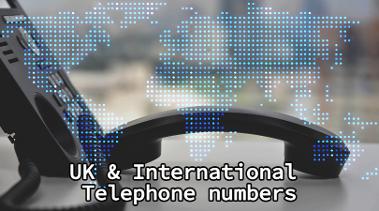
as well as a higher rank within the corporation In other words, it looks like the more psychopathic an employee is, the further up the corporate finance ladder they will go.
This corresponds with findings that show there are more psychopaths at the top of organisations than at the bottom
Creating destruction
This is not to say that personal success in climbing the corporate ladder equates to professional success when someone reaches the top job
Quite the opposite. In fact, my research has shown that psychopathic leadership is associated with organisational destruction
This includes a greater propensity to take risks with other people?s money, a greater willingness to gamble with someone else?s money and lower returns for shareholders.
In one study over a ten-year period, psychopathic fund managers were found to generate annual returns that were 30% lower than their less psychopathic peers.
The research team concluded that among elite financial investors, psychopathy and its appearance of personal dominance and competence, may enable people to rise to the top of their profession.
But this does not translate into improved financial performance at the organisational level, where the presence of the psychopathic is actually counterproductive.

Fraud has always been associated with the psychopathic? so much so that in one study 69% of auditors believed they had encountered corporate psychopaths in relation to their investigations.
Years ago, one bank reportedly used a psychopathy measure to recruit staff
But I would advise against hiring people who score very highly, because they are totally concerned with personal success.
They are not bothered about long-term organisational growth or sustainability As such, decisions will be made to suit the psychopathic worker, and not the organisation.
For example, new hires would be likely to be people who can help the psychopath achieve their personal aims and objectives rather than aid the company.
Anyone astute enough to potentially be a challenge to the psychopathic employee would not be hired by them in the first place
Without exception, psychopathic people love money and they are more motivated by it than other people are
Unlike the rest of the population, psychopaths are uninterested in higher values such as close emotional connections with family and friends, and much more focused on money and materialism
Seen through this lens, the appeal of the corporate banking sector ? and the salaries and bonuses it offers ? to people with these traits soon becomes clear.
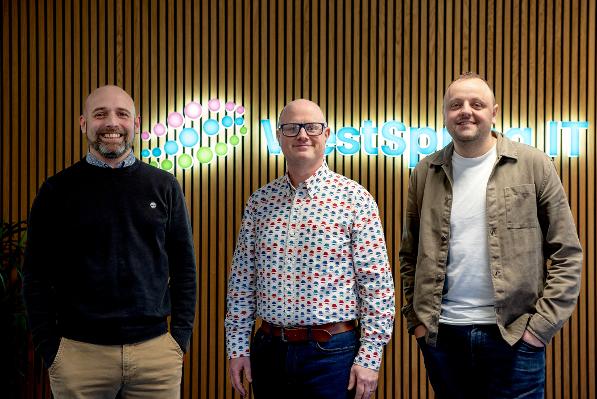
South West managed ITservice provider WestSpring iscelebrating a healthyyear end with a 33per cent growth in turnover. The company, based in Bristol, turned over £5million in the last 15 monthscompared with just lessthan £3million the previousyear

South West managed ITservice provider WestSpring is celebrating a healthy year end with results showing a 33 per cent growth in turnover over the past 15 months
The company, based in Bristol, has a team of 31and is also recruiting for new roles. The company turned over more than £5 million over the past 15 months compared with just less than £3 million the previous year (12 months)
Co-founder Jason Small said: ?It?s been great to see the continued growth of the business with this record quarter to end our financial year, especially as we have seen our consultancy and project work soar as we help clients to solve their security and productivity needs.
?We are about to recruit for more people into our client relationship team so any experienced relationship managers from the ITand comms sectors we are keen to talk to?
Last year Wiltshire entrepreneur James Phipps joined as executive chairman and is thrilled with how the company is evolving.
He said: ??We have a record order book for our new financial year ? which we?ve changed to align with key clients and suppliers ? and we are matching that growth with four new recruits joining this month as we continue to invest even more in giving the award winning service that we are famous for?
James was previously executive chairman of
Excalibur Communications, leaving the board of the company in 2020 after completing a management buy-out He has now stepped in to support this high-growth business and is also making a significant personal investment. The team has also welcomed new chief operations officer Victoria Parker to streamline and manage its own internal processes
James and Victoria joined founders Jason Small and Phil Cater. The pair met while both working for the same company and both felt they could offer something different ? a brand which cared for clients and their team equally. They set up WestSpring ITin 2016.
Phil Cater, co-founders said: ?As founders we have recognised we have gone through exciting growth in recent years, but as the complexities have grown we needed to reflect that in adding to the depth and experience of the board and the overall team?
Based in Aztec West in Bristol, the WestSpring ITteam have big plans for 2025 and beyond to increase their client base across the South West and beyond The company provides strategic managed IT solutions, with service excellence a priority, establishing long lasting partnerships with businesses in the UK.
Their clients include Halo Leisure, Circadian Trust, Method Consulting and Precision Resource Group https://westspring-it.co.uk


More than 30 years ago, George Burr wanted to set up his own printing company for Bristol and beyond, as he felt he wanted to provide local, high-quality, and bespoke printing services to businesses and individuals
Today it is led by managing director Tom Chard: ?We are an established specialist printing company offering fine art giclee printing, map printing, greeting card printing and wallpaper printing
?We also offer bespoke services such as ordering personalised maps (partnering with Ordnance Survey), creating ?retro?1890 style maps for any postcode and much more?
Since the business started, it has evolved to employ 14 staff members with some having worked within the business for more than 20 years.
?We work with many individuals, especially around our map services, we also work with established artists who want to provide
affordable versions of their artwork alongside originals ? such as greetings cards or limited edition prints,?Tom said
Redcliffe Imaging works with artists including Jenny Urquhart, known for her iconic images of Bristol, and Peter Spens, known for his fine art work of London and the official artist for the Olympics in London 2012, Rio 2016, and Tokyo 2020.
George made the decision to step back from the company and opted for converting the business into an employee-owned trust
He said: ?I chose an EOTas a viable exit route as I considered it was the best way to acknowledge the massive contribution of the long-serving employees of Redcliffe It also had tax advantages for both myself and the employees.
?In this transition period I?m still involved with Redcliffe, but in a much smaller, hands off way This new free time has enabled me to make extended travel plans and spend more time in the great outdoors, which is



my great passion?
An employee-owned trust allows the founder or owners of a business to exit by selling their shares to a trust run by employees. They can exit immediately or over a period of time
?Becoming employee owned has been a steep learning curve for us all in that it takes time to understand how it works and who is responsible for what,?Tom said
?Now the ?new look?Redcliffe is beginning to ?bed in?and we understand that the harder we work and the more productive we are, the more we will all benefit.?
The Redcliffe Imaging team were supported in becoming an EOTby Chris Maslin who runs Go EO, an independent company which works with SMEs considering this business model
?Having gone through the process myself, I
felt it was, in many cases, far more complex and costly than it needed to be and came up with a more streamlined approach to help others transition to this business model,? Chris said.
?Working with Chris was very smooth with regular meetings and strong communication It was all new and a big change for us all and Chris really supported us through the process? The service was outstanding Chris has helped us to understand that we need to tailor how the trust works for us and the nuances of our business,? said Tom Chard.
This year looks bright for the new Redcliffe Imaging, as they plan to increase productivity by 30 per cent and are investing in a new kit, including a new wallpaper printer with trimmer, to enhance their printing accuracy
For more information about Redcliffe Imaging visit https:// www redcliffe co uk/
